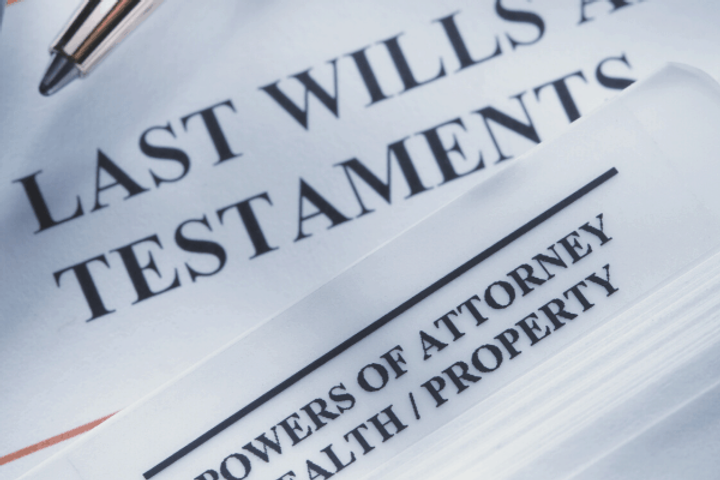Issue: Can a defendant in a quiet title action in California properly move to strike a claim for attorney’s fees in a complaint before discovery?
Conclusion: Yes, a defendant in a quiet title action in California can move to strike a claim for attorney’s fees in a complaint before discovery if the claim is irrelevant, false, or an improper matter in any of the pleadings.
Rules and Application:
In the absence of some special agreement, statutory provision, or exceptional circumstances, attorney’s fees are to be paid by the party employing the attorney. Cal. Civ. Proc. Code § 1021 (2019) [1]; Prentice v. N. Am. Title Guar. Corp., 59 Cal. 2d 618, 620, 30 Cal. Rptr. 821, 823, 381 P.2d 645, 647 (1963); Reid v. Valley Rests., Inc., 48 Cal. 2d 606, 610, 311 P.2d 473, 475 (1957).
Relevant portions of Cal. Civ. Proc. Code (“CCP”) § 435(b) states: “Any party, within the time allowed to respond to a pleading may serve and file a notice of motion to strike the whole or any part thereof . . . .”
Following the above statute, CCP § 436 states:
The court may, upon a motion made pursuant to Section 435, or at any time in its discretion, and upon terms it deems proper:
(a) Strike out any irrelevant, false, or improper matter inserted in any pleading.
(b) Strike out all or any part of any pleading not drawn or filed in conformity with the laws of this state, a court rule, or an order of the court.
California courts have generally been hesitant to find implied waivers of attorney fees. In Folsom v. Butte County Assn. of Governments, 32 Cal.3d 668, 671 (1982), the Supreme Court concluded that an agreement silent as to fees does not bar a motion pursuant to CCP § 1021.5. Rather, statutory attorney fees are properly awarded “unless expressly or by necessary implication excluded by the stipulation.” (32 Cal.3d at p. 678, italics added.) Absent “affirmative agreement of the parties to the contrary,” the trial court retains jurisdiction after the filing of a compromise agreement to consider a statutory fee motion. (Id. at p. 679; see also Washburn v. City of Berkeley (1987) 195 Cal.App.3d 578 (1987)
Federal courts have been similarly loathe to infer fee waivers. In Wakefield v. Mathews, 852 F.2d 482, 484 (9th Cir. 1988), the court noted that, “Waiver of attorneys’ fees should not be presumed from a silent record.” It then held that while “general releases of all claims and costs” do not waive attorney fees (Ashley v. Atlantic Richfield Co., 794 F.2d 128, 140 (3d Cir. 1986), El Club Del Barrio v. United Community Corporations, 735 F.2d 98, 100 (3d Cir. 1984)), an express release which includes “‘costs or expenses of any nature whatsoever, known or unknown, fixed or contingent'” does. (Wakefield, supra, at p. 484.)
Additionally, Mabee v. Nurseryland Garden Centers, Inc., 88 Cal.App.3d 420 (1979), states “[Where] attorney fees are incurred in a prior action, or sought in a proceeding as damages — as for example in false imprisonment or malicious prosecution suits — or where recovery is sought in an action by an attorney against his client for an agreed or a reasonable fee, then the claim for attorney fees is part of the damage sought in the principal action. Only in such circumstances would the attorney fee be required to be pleaded and proven — as any other item of damages — at trial. No similar procedural and evidentiary base is required where ‘the attorney fee was not the cause of action but an incident to it.'” (Id. at p. 425, citing Huber v. Shedoudy (1919) 180 Cal. 311, 314.)
Following Mabee, California courts have consistently “distinguish[ed] between” attorney’s fees that are sought as “the allowance … to the prevailing party as an incident to the principal cause of action,” and those that are sought as “part of the cause of action.” (Mabee, 88 Cal.App.3d 420, 425, superseded by statute on another ground as stated in Santisas v. Goodin, 17 Cal.4th 602, 629.) When sought by the “prevailing party … as an incident to [the] judgment” (Mabee, at p. 425), attorney’s fees may be “properly awarded [as a form of cost] after entry of a . . . judgment” (Khavarian Enterprises, Inc. v. Commline, Inc., 216 Cal.App.4th 310, 327 (2013)). However, when “fees are part of the relief sought[, they] must be pleaded and proved at trial.” (Id.) As explained by our Supreme Court: “‘[W]here attorney fees are . . . sought in a proceeding as damages . . . , then the claim for attorney fees is part of the damage sought in the principal action. … [I]n such circumstances … the attorney fee [would] be required to be pleaded and proven—as any other item of damages—at trial. No similar procedural and evidentiary base is required where “the attorney fee was not the cause of action but an incident to it.”’ (Folsom v. Butte County Assn. of Governments, 32 Cal.3d 668, 678, fn. 16 (1982), quoting Mabee, supra, 88 Cal.App.3d at p. 420.)
Here at the MLC, we love to discuss technicalities of attorney’s fees. Give us a call if you want to discuss further.
[1] Cal. Civ. Proc. Code § 1021: “Except as attorney’s fees are specifically provided for by statute, the measure and mode of compensation of attorneys and counselors at law is left to the agreement, express or implied, of the parties; but parties to actions or proceedings are entitled to their costs, as hereinafter provided.”





